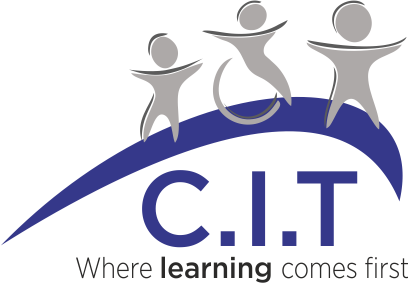CIT is a Multi-Academy Trust, a company limited by guarantee. It is constituted as a non-profit charitable trust, with a charitable objective. The Trust acknowledges that the purpose of its governance structure and processes is:
‘To provide confident, strategic leadership and to provide robust accountability, oversight and assurance for the educational and financial performance of its schools and of the trust as a whole.’
DfE Governance Handbook, 2021.
Please click the buttons below to view our Scheme of Delegation or Artilces of Association.
PLEASE SCROLL TO THE FOOT OF THE PAGE TO ACCESS ALL OTHER GOVERNANCE DOCUMENTATION.
THE GOVERNANCE MODEL
In the Community Inclusive Trust the Trustees are responsible for governance. As such it is essential that the Local School Boards (formally known as the school’s Local Governing Body) understand the role that they are to fulfil in providing assurances to the Trustees, this includes the powers that the Trustees have delegated.
The CIT Approach is as follows:
| Statutory Functions of Governance | Trust Board (TB) | Local School Board (LSB) |
|---|---|---|
| Ensuring clarity of vision, ethos and strategic direction. | Trust Board set Trust vision, mission, values and strategic priorities. | Provide assurance to the TB regarding alignment of the schools ethos and vision and development priorities with the Trust strategic framework. |
| Holding executive leaders to account for the educational performance of the school and its pupils, and the performance management of staff. | Trust Board holds CEO to account. CEO holds School HTs to account. CEO provides data/information for Trustee scrutiny linked to assurance. | Provides independent assurances to the TB. |
| Overseeing the financial performance of the school/trust and making sure that its money is well spent, including the pupil premium. | Trust Board holds CEO to account. CEO to hold CFO to account. CEO provides data/information for Trustee scrutiny linked to assurance. | Provides independent assurance to the TB linked to ring fenced grants. |
As a result of its multi-academy trust structure, CIT uses two forms of governance, Executive and Non-Executive, to secure the above purpose.
Executive Governance
Executive Governance is delivered through line management of the Headteachers, via the Director of Education – Primary, Director of Education – SEND, and the Chief Executive Officer (CEO).
The concept focuses on setting and delivering challenging, but deliverable KPIs at each school and ensures that the Headteachers are held to account for achieving these.
The CEO leads Executive Governance, is the Accounting Officer for all schools within the Trust and is ultimately accountable for standards in all schools. The CEO holds the Headteachers of Trust schools to account.
The Directors of Education champion the Trust’s vision and strategies; they provide high levels of support and challenge, enable a culture of both ambition and honesty to be developed, and advocate for the needs of the schools.
The Chief Finance Officer (CFO) champions the Trust’s approach to financial best practice and compliance. They report to the Accounting Officer (CEO) who is ultimately accountable for financial compliance and practice in line with the ESFA Financial Handbook.
Delivered through:
• Yearly school ‘health checks’ which evaluate the performance of the schools using the current Ofsted inspection framework.
• Annual safeguarding health checks to check compliance.
• Regular line management meetings between the Trust’s executive and Headteachers of the schools.
• Financial Audits each year.
• Bi-monthly budget monitoring.
• Reporting through the CEO and executive leadership to the Board of Trustees.
Non-Executive Governance
There are three layers to the non-executive governance structure in the Trust:
• Members
• Trustees
• Local School Boards
Non-Executive Governance is delivered through:
Trust Board meetings which hold the CEO to account for: the educational and financial performance of the Trust schools; delivery of the Trust’s strategic priorities through the KPIs; matters linked to compliance and best practice linked to the operational running of the Trust. The Board also considers the key risks linked to its strategic priorities and how these are being mitigated.
Committee meetings across the Trust Board – Finance, Audit and Estates; Education Scrutiny and Safeguarding; Human Resources – linked to Trust level matters of assurance linked to compliance, best practice and performance. These assurances are reported to the Trust Board.
Local School Board (LSB) meetings and activity which establishes for the Trust Board (through evidence scrutiny, challenge and debate) levels of independent assurance (confidence) in relation to key aspects of the educational and other performance of the school they have oversight of. The LSBs also have responsibility for additional aspects of their schools which fall under the headings of:
• Community
• Concerns
• Celebration
• Communication
• Culture
The Members Group undertakes scrutiny to ensure that the governance arrangements of the Trust are robust and that the strategic direction of the work of the Trust aligns with its charitable object.
The AGM took place on 10th December 2024 at the Community Inclusive Trust Head Offices – Warwick House, Long Bennington Business Park, NG23 5JR.




